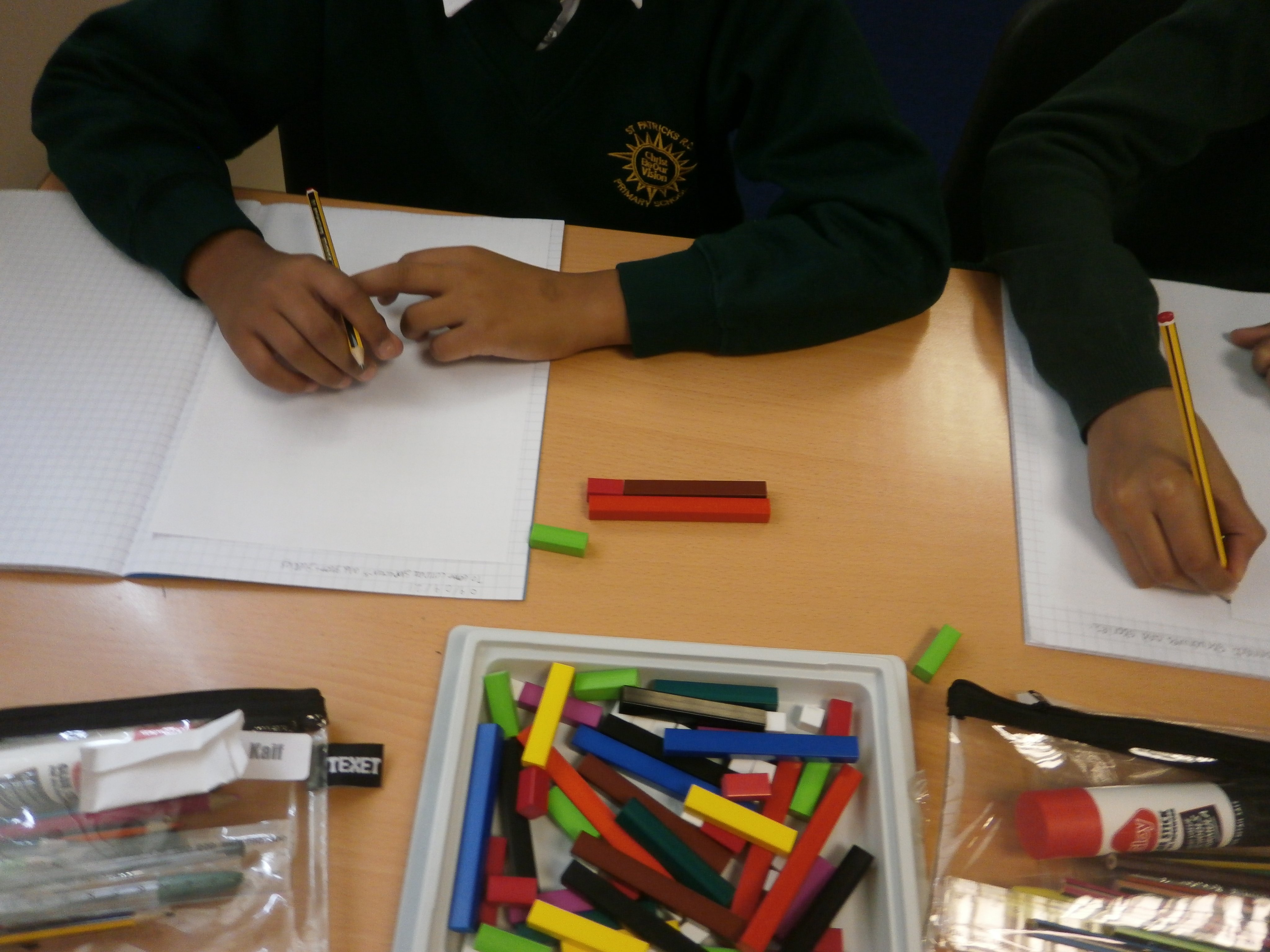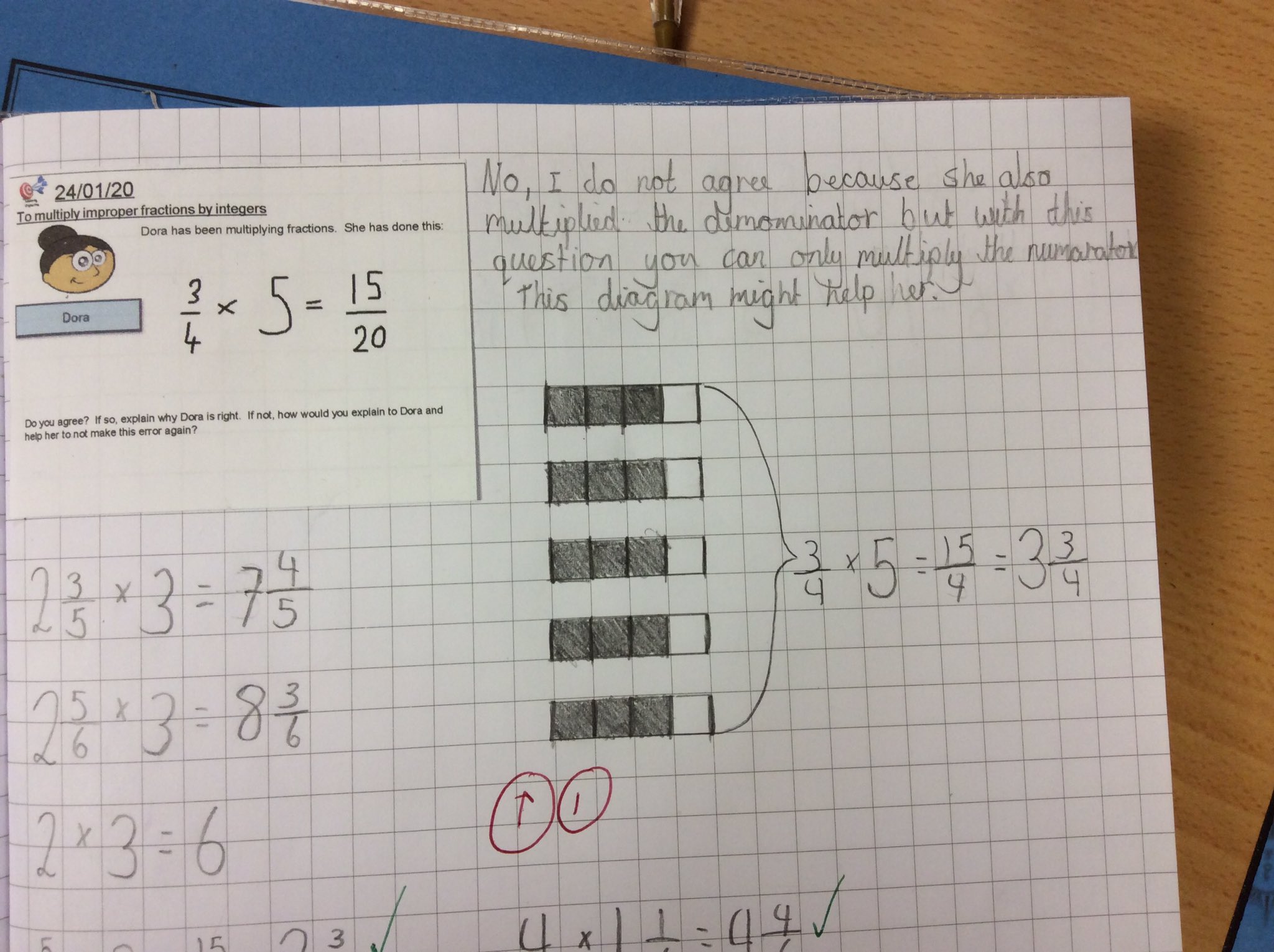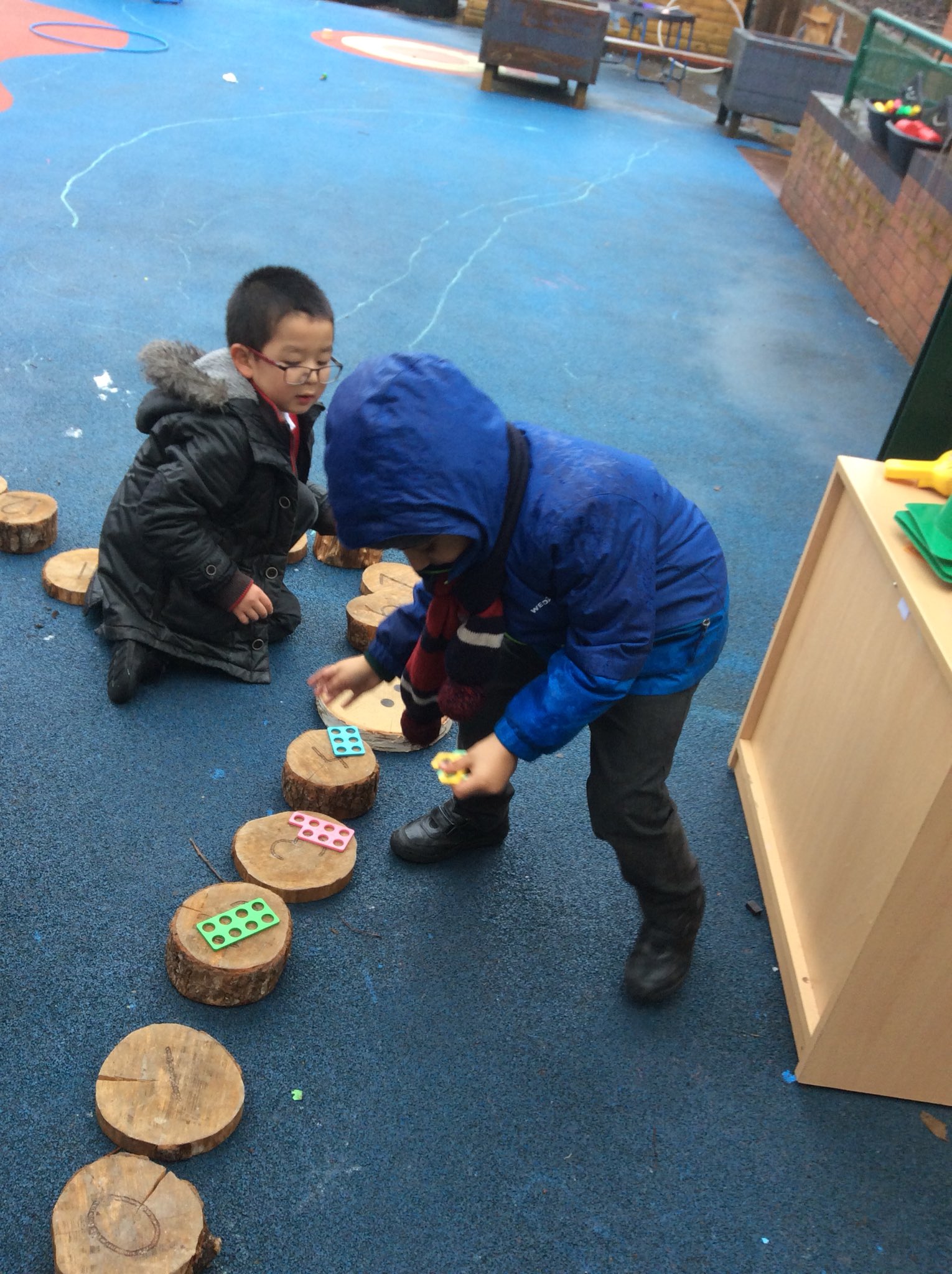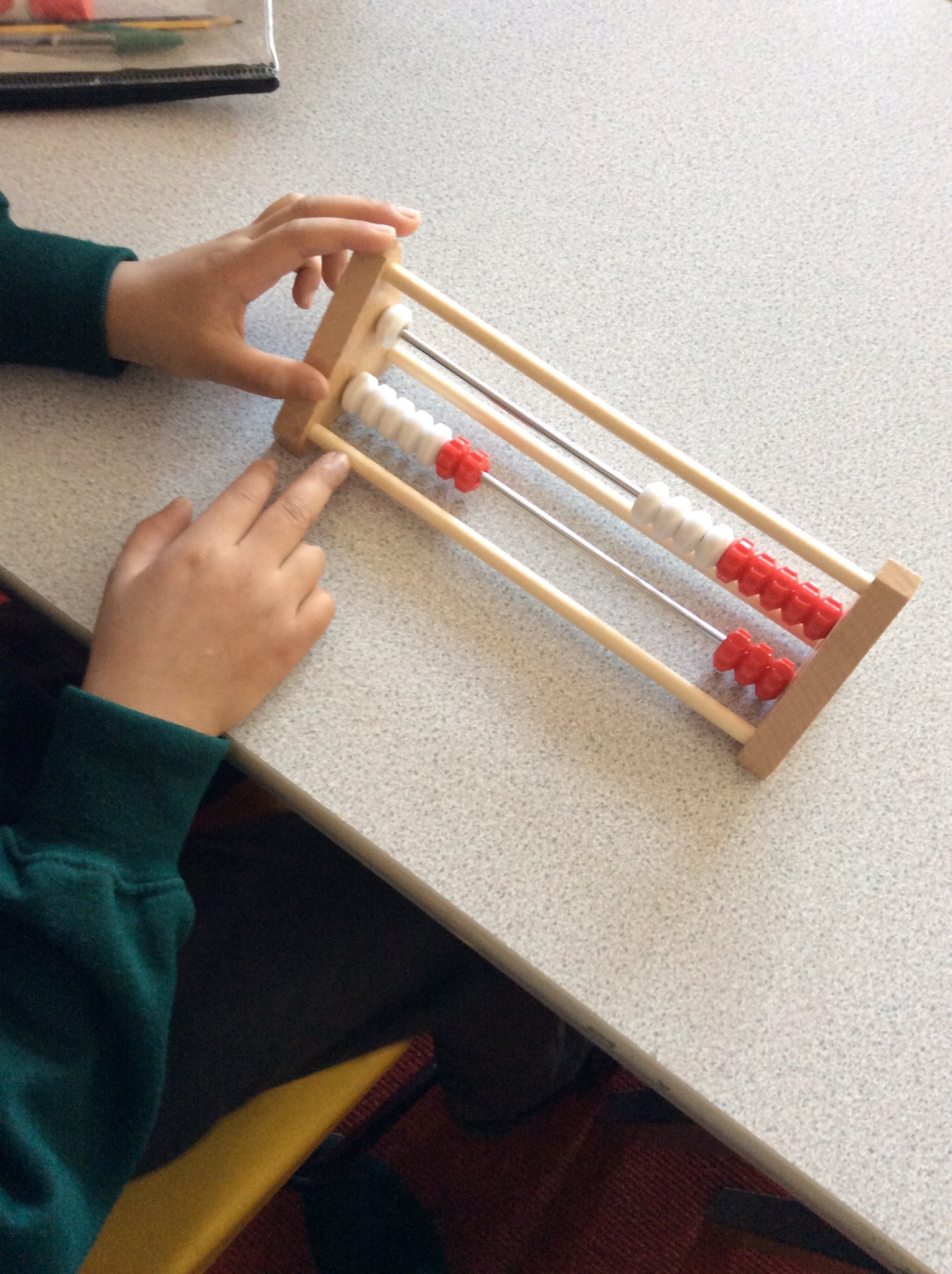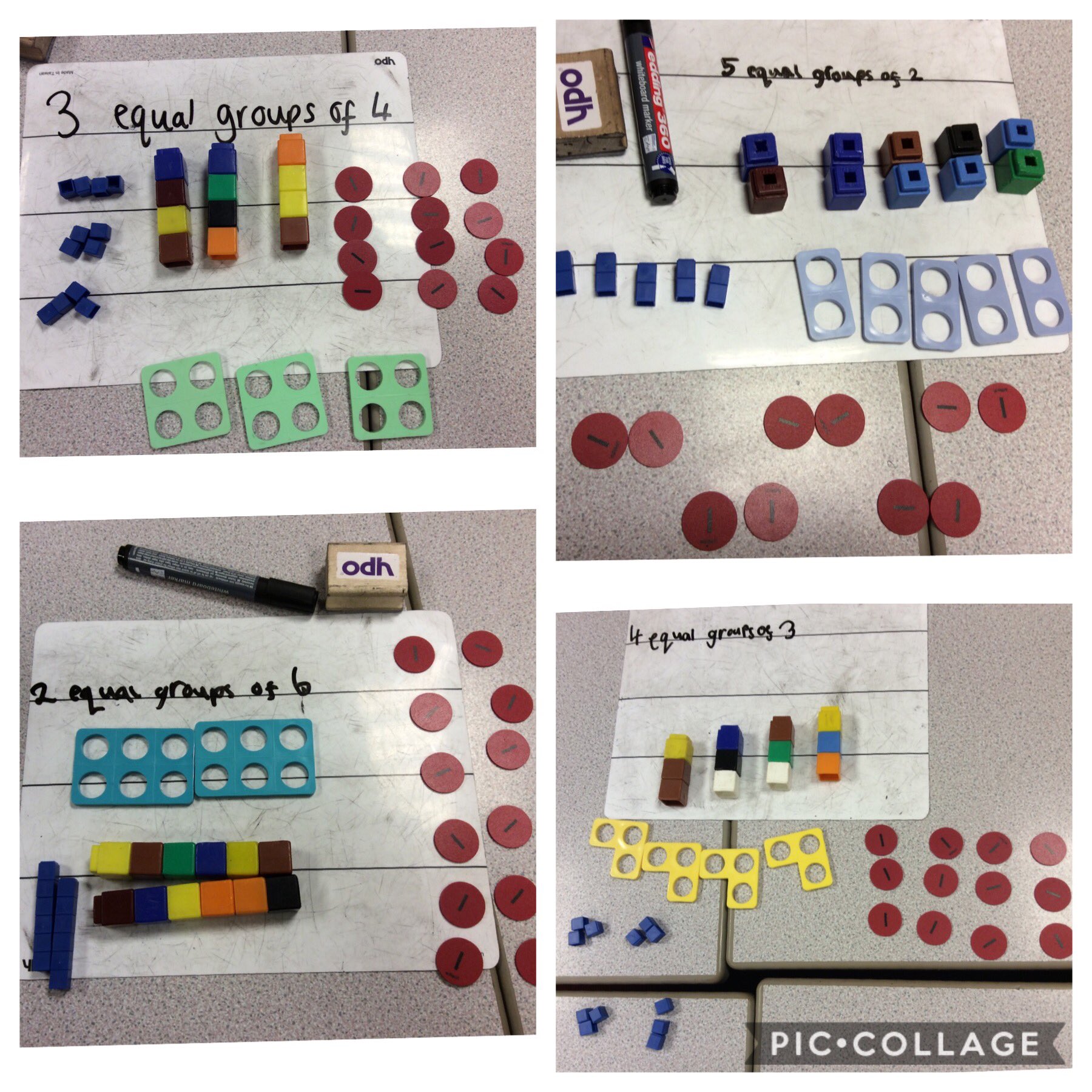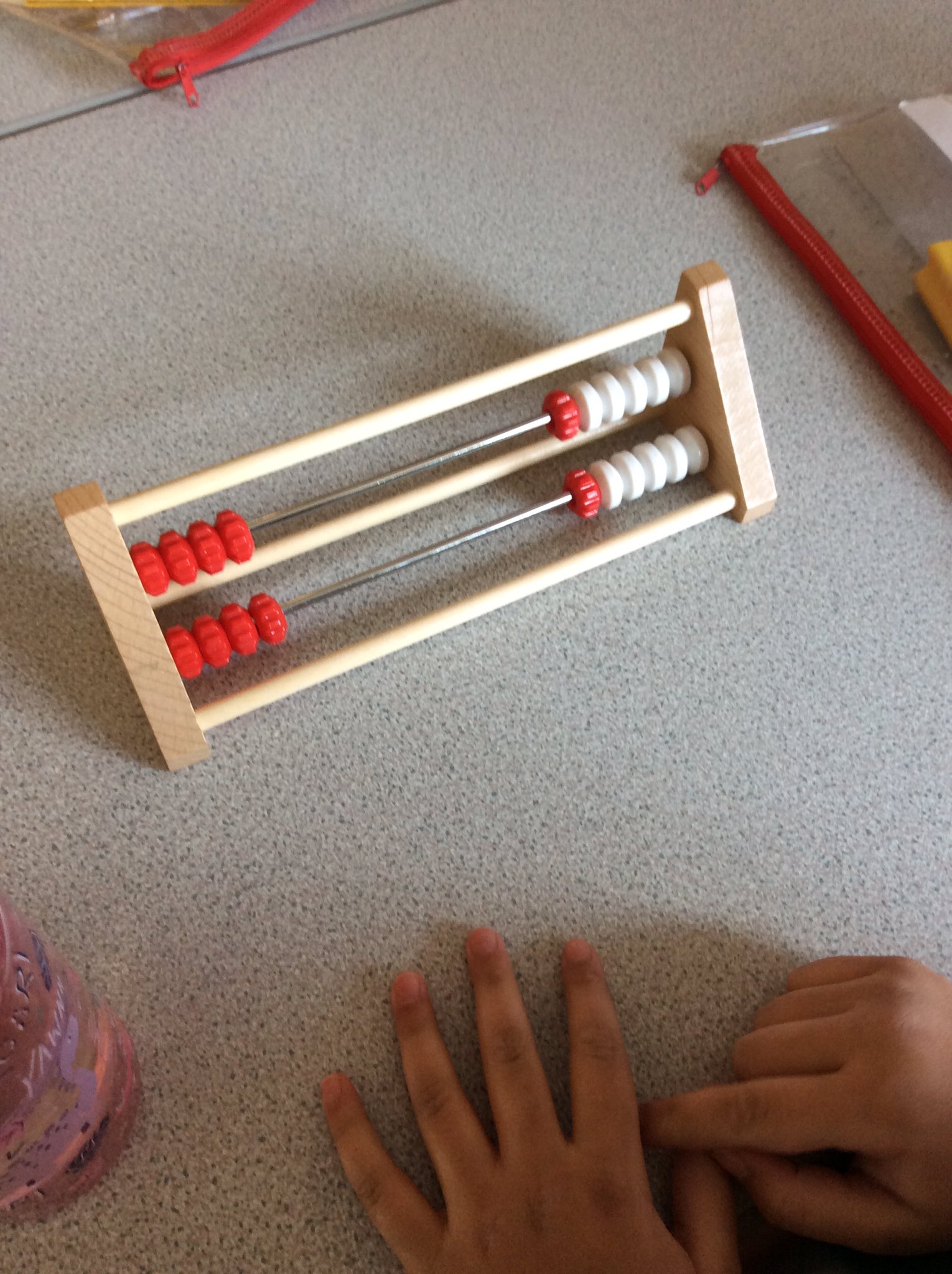Maths
Maths is a fascinating and creative subject. It is essential for everyday life, a useful tool in other subjects such as medicine and banking and a rewarding subject to study in its own right.
At St Patrick's, we believe that all children are capable of being successful in maths with hard work and the right teaching.
We use a 'Teaching for Mastery' approach to maths. Mastering maths means pupils acquiring a deep, long-term, secure and adaptable understanding of the subject. The phrase ‘Teaching for Mastery’ describes the elements of classroom practice and school organisation that combine to give children the best chances of mastering maths.
Some Key Features of the Teaching for Mastery Approach
- Children are taught through whole-class interactive teaching, where the focus is on all pupils working together, on the same lesson content, at the same time, with nobody left behind.
- There is lots of back-and-forth interaction between the teacher and children. Children do not just sit and passively listen to the teacher but think, take part in discussions, answer questions and solve problems throughout the session.
- We want children to think mathematically so they can make sense of the ideas that they are being taught. We support them to explain their thinking clearly in full sentences.
- Concrete objects (such as counters), images and animations, as well as gestures, actions and choral responses, are used to develop children's understanding.
- If a child struggles in a lesson, this is identified quickly and action is taken during or after the lesson so they are ready for the next step of their learning.
- Children who understand things quickly are challenged to deepen their understanding or use their learning in a different way.
- Number bonds to ten and multiplication tables are learned to automaticity (knowing them 'off by heart', without having to think) to free up children's thinking power to focus on understanding mathematical ideas.
- We spend longer on key ideas that underpin later learning. We also make time to revisit and practise prior learning.
Supporting all Children
- Lessons are inclusive and designed so all children can stay together and keep up.
- If children are struggling, teachers will adapt their teaching or lesson sequence.
- Children may be supported by an adult for some or all of the lesson.
- Children may have pre-tutoring (some advance support before the lesson) or post-tutoring (some extra teaching after the lesson) to help them to keep up.
- Sometimes, teachers may challenge some children further by asking them to solve a problem in a different way in order to deepen their understanding.
- Some children's starting points may be lower than the rest of the class. This is mainly our older children, who have not had mastery teaching all the way through school. It may also be because they find it difficult to work during lockdown or they had extended absence. These children take part in an extra number session, to deepen their understanding of basic number.
- A very small number of children, often with Special Educational Needs, may progress at a much slower rate than their friends and may be working at a level of understanding much lower than their class. Even with adaptations, they do not have the understanding to access many lessons in their class.
- These children have 1:1 or small group support to follow an alternative structured maths programme.
Calculation
By the end of Year Six, the National Curriculum states that children should be able to use formal written methods for addition & subtraction and for multiplication & division, for calculations that cannot be worked out efficiently using mental arithmetic.
These are the methods that parents may be familiar with from their own school days.
In some younger year groups, children may use methods that seem slightly different. These are used as 'stepping stones' to using the more formal, efficient methods. They help children to understand how the formal methods work.
For more information on our approach to calculation, please click here.
Curriculum
We follow the EYFS framework and National Curriculum which set out what children should know by the end of each key stage.
Early Years Foundation Stage Framework
We use materials from the National Centre for Excellence in Teaching Mathematics (NCETM) and the White Rose Maths scheme of work to plan our lessons.
Click the links to see our long term plans for each year group. This sets out what children are learning about during different times of the year. Please note, timing may vary slightly to suit the needs of children.
Fluency and Mastering Number
Children in Reception, Year One and Year Two take part in a daily 10-15 min 'Mastering Number' session, in addition to their normal maths lesson. This helps children to develop deep understanding of number, addition and subtraction. This will give them a firm foundation for maths in Key Stage Two.
Children in Key Stage Two also spend 15 minutes at the start of each lesson focusing on learning multiplication and division facts and understanding how to use these to solve problems. They also have a 'Times Table Rockstars' account so they can practise their learning at home.
North West One Maths Hub
The National Centre for Excellence in the Teaching of Mathematics supports schools in England to develop their maths teaching through local Maths Hubs. Our maths lead, Mrs Jordan, is a Local Leader of Mathematics Education and a Primary Teaching for Mastery Specialist and works for North West One Maths Hub to provide our staff (and staff from other schools) with regular professional development in teaching maths.
Evidence shows that improving the quality of teaching is the best way to improve children's success and enjoyment of maths.


